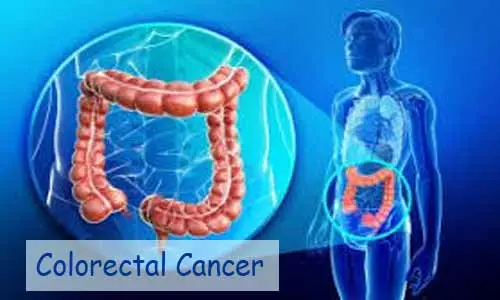- Home
- Medical news & Guidelines
- Anesthesiology
- Cardiology and CTVS
- Critical Care
- Dentistry
- Dermatology
- Diabetes and Endocrinology
- ENT
- Gastroenterology
- Medicine
- Nephrology
- Neurology
- Obstretics-Gynaecology
- Oncology
- Ophthalmology
- Orthopaedics
- Pediatrics-Neonatology
- Psychiatry
- Pulmonology
- Radiology
- Surgery
- Urology
- Laboratory Medicine
- Diet
- Nursing
- Paramedical
- Physiotherapy
- Health news
- Fact Check
- Bone Health Fact Check
- Brain Health Fact Check
- Cancer Related Fact Check
- Child Care Fact Check
- Dental and oral health fact check
- Diabetes and metabolic health fact check
- Diet and Nutrition Fact Check
- Eye and ENT Care Fact Check
- Fitness fact check
- Gut health fact check
- Heart health fact check
- Kidney health fact check
- Medical education fact check
- Men's health fact check
- Respiratory fact check
- Skin and hair care fact check
- Vaccine and Immunization fact check
- Women's health fact check
- AYUSH
- State News
- Andaman and Nicobar Islands
- Andhra Pradesh
- Arunachal Pradesh
- Assam
- Bihar
- Chandigarh
- Chattisgarh
- Dadra and Nagar Haveli
- Daman and Diu
- Delhi
- Goa
- Gujarat
- Haryana
- Himachal Pradesh
- Jammu & Kashmir
- Jharkhand
- Karnataka
- Kerala
- Ladakh
- Lakshadweep
- Madhya Pradesh
- Maharashtra
- Manipur
- Meghalaya
- Mizoram
- Nagaland
- Odisha
- Puducherry
- Punjab
- Rajasthan
- Sikkim
- Tamil Nadu
- Telangana
- Tripura
- Uttar Pradesh
- Uttrakhand
- West Bengal
- Medical Education
- Industry
Colon capsule endoscopy, an effective option for colorectal cancer screening: BMJ

USA: Colon capsule endoscopy (CCE) can be considered as a relevant option for the screening of colorectal cancer (CRC), finds a recent study in the BMJ journal Gut.
According to the study CCE was superior to computed tomographic colonography (CTC) for polyps ≥6 mm detection and non-inferior for polyps ≥10 mm detection. This implies that CCE is comparable or superior to CTC for colorectal neoplasia screening. However, none of the two tests is as effective as optical colonoscopy (OC).
CCE has shown promise for the detection of colorectal neoplasia compared with optical colonoscopy. Brooks D Cash, University of Texas Health Science Center at Houston, Houston, Texas, USA, and colleagues aimed to compare CCE with other screening tests in average risk screening patients.
The study included patients 50 to 75 years of age (African Americans, 45–75 years). They were randomized to CCE or CT colonography (CTC) and subsequent blinded OC. From 320 enrolled subjects, data from 286 (89.4%) were evaluable.
The primary endpoint was diagnostic yield of polyps ≥6 mm with CCE or CTC.
Key findings of the study include:
- The proportion of subjects with any polyp ≥6 mm confirmed by OC was 31.6% for CCE versus 8.6% for CTC (pPr non-inferiority and superiority=0.999).
- The diagnostic yield of polyps ≥10 mm was 13.5% with CCE versus 6.3% with CTC (pPr non-inferiority=0.9954).
- The sensitivity and specificity of CCE for polyps ≥6 mm was 79.2% and 96.3% while that of CTC was 26.8% and 98.9%.
- The sensitivity and specificity of CCE for polyps ≥10 mm was 85.7% and 98.2% compared with 50% and 99.1% for CTC. Both tests were well tolerated/safe.
"CCE was superior to CTC for detection of polyps ≥6 mm and non-inferior for identification of polyps ≥10 mm," wrote the authors. "CCE should be considered comparable or superior to CTC as a colorectal neoplasia screening test, although neither test is as effective as OC."
The study titled, "Multicentre, prospective, randomised study comparing the diagnostic yield of colon capsule endoscopy versus CT colonography in a screening population (the TOPAZ study)," is published in the BMJ journal Gut.
DOI: https://gut.bmj.com/content/early/2020/12/17/gutjnl-2020-322578.long
Dr Kamal Kant Kohli-MBBS, DTCD- a chest specialist with more than 30 years of practice and a flair for writing clinical articles, Dr Kamal Kant Kohli joined Medical Dialogues as a Chief Editor of Medical News. Besides writing articles, as an editor, he proofreads and verifies all the medical content published on Medical Dialogues including those coming from journals, studies,medical conferences,guidelines etc. Email: drkohli@medicaldialogues.in. Contact no. 011-43720751


